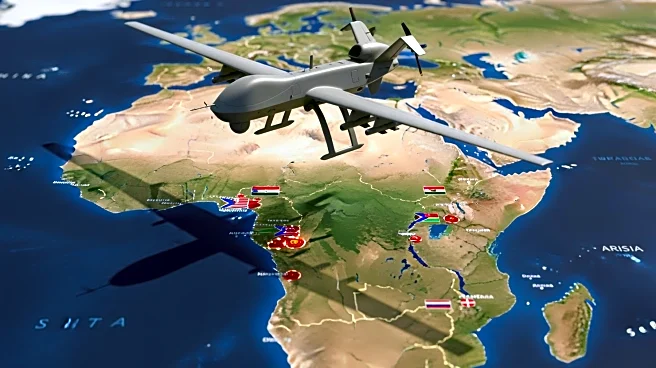What's Happening?
Several African countries have entered into $4 billion military-industrial contracts with Russia, as Western influence in the region wanes. Nations such as Burkina Faso, Mali, and Niger have rejected Western influences,
dismantling French military bases and adopting indigenous languages. Russia's state-owned arms export company, Rosoboronexport, has strengthened defense cooperation with 46 African nations, providing military equipment, maintenance services, and technological transfers. The contracts aim to modernize African military capabilities and include training programs and collaborative initiatives.
Why It's Important?
The shift in military alliances highlights the changing geopolitical landscape in Africa, with implications for global power dynamics. Russia's growing influence in the region challenges traditional Western dominance and may affect international relations and security policies. The military deals could enhance African countries' defense capabilities, impacting regional stability and security. The situation underscores the broader competition for influence in Africa, with potential repercussions for economic and political alliances.
What's Next?
African countries may continue to explore military partnerships with non-Western states, potentially reshaping regional security dynamics. Western nations may need to reassess their strategies and engagement in Africa to counter Russian influence. Diplomatic efforts to address the changing alliances and ensure regional stability will likely intensify. The international community will monitor developments closely, with potential implications for future peace negotiations and security arrangements.
Beyond the Headlines
The situation raises ethical questions about arms transfers and the impact on regional conflicts. The shift in alliances may influence global defense policies and trade dynamics, as countries navigate the complexities of military cooperation and geopolitical tensions. Long-term, the changing landscape may affect economic development and governance in Africa, as nations balance external influences and domestic priorities.










